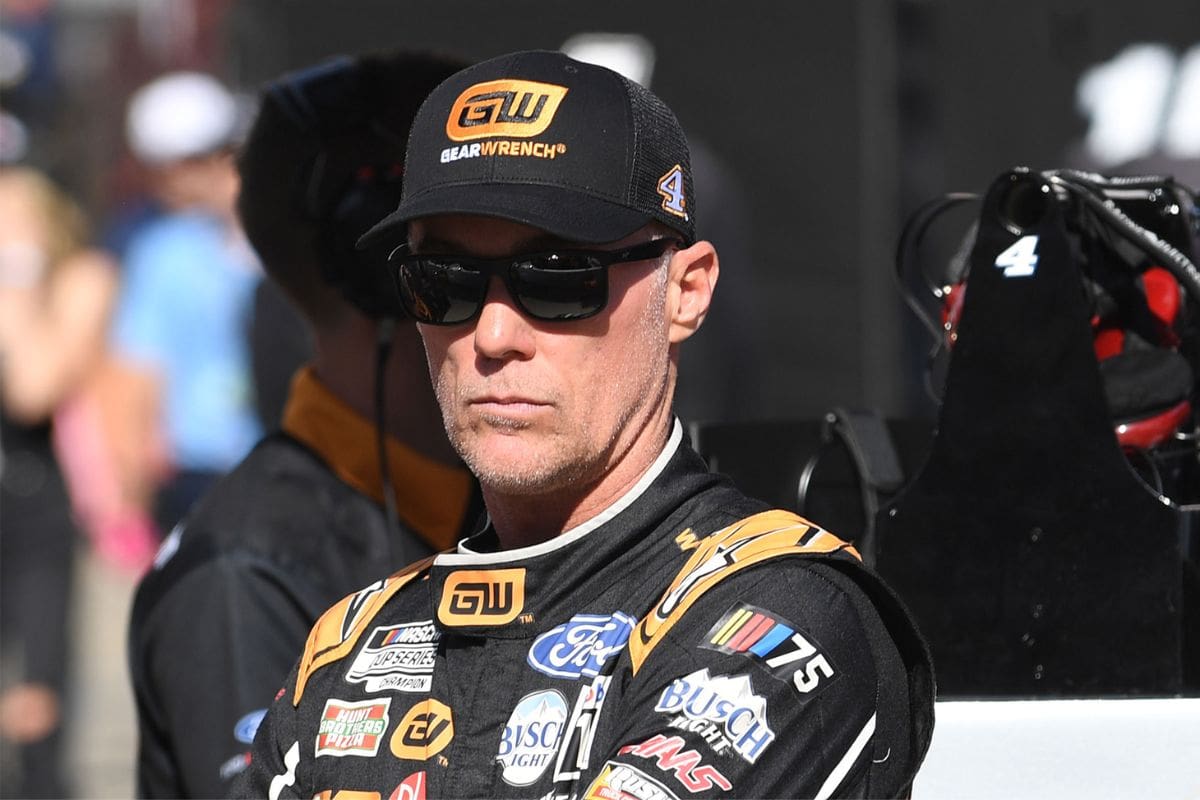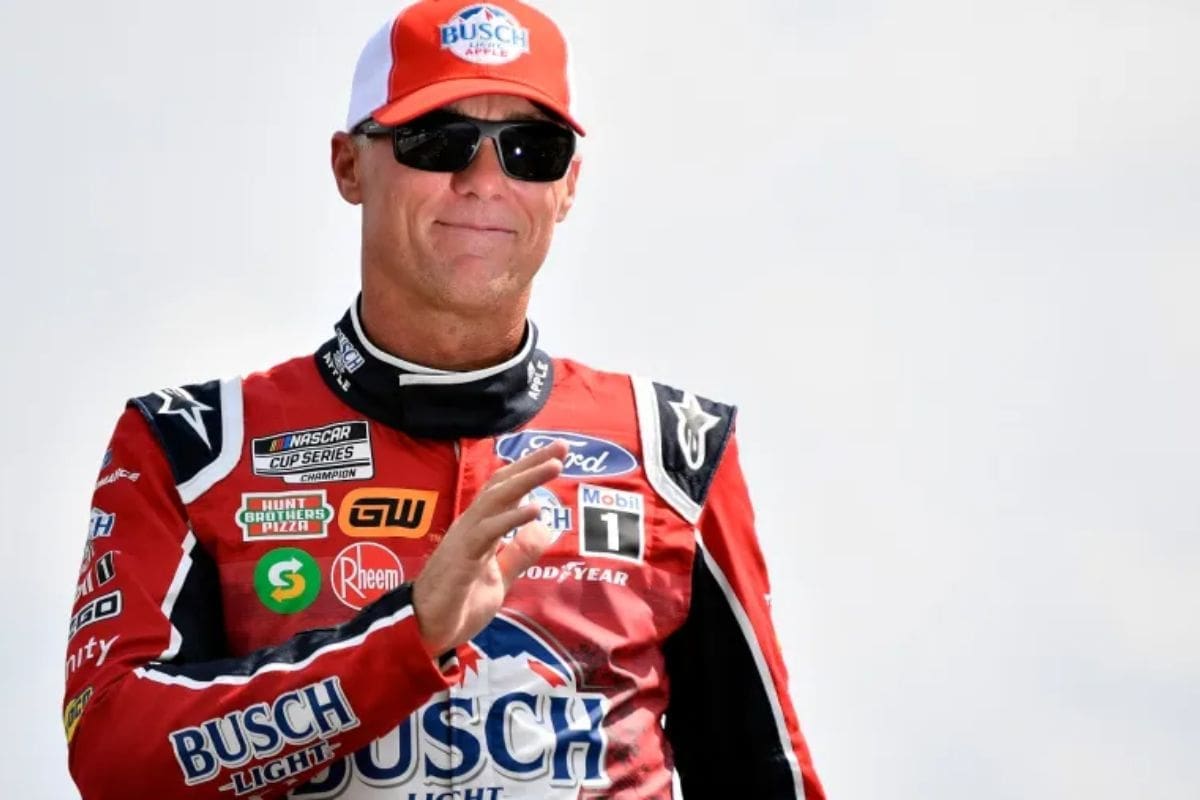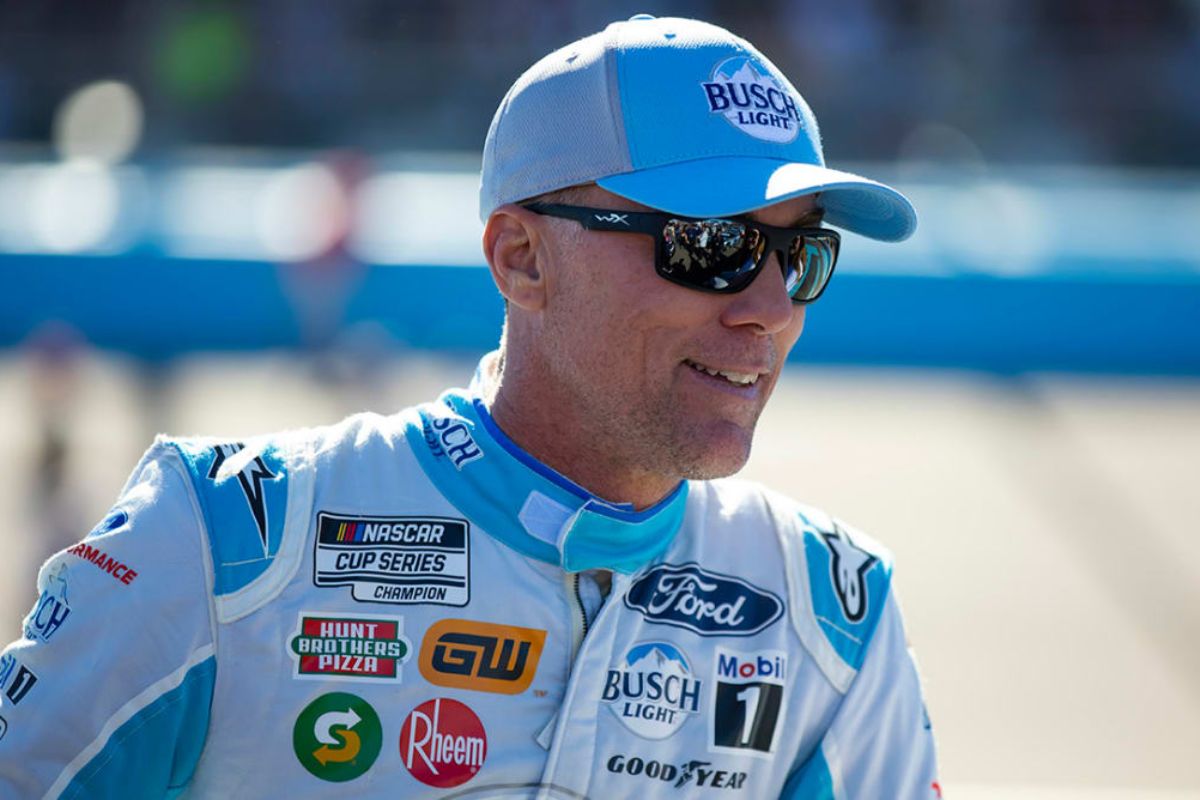Kevin Harvick’s Bold Prediction: Kevin Harvick’s comment that Brad Keselowski’s period without a win might extend into the future is not just a casual remark but a reflection of deeper issues within RFK Racing’s operational dynamics. This prediction, grounded in Keselowski’s recent performances and RFK Racing’s struggle to bridge the gap between potential and victory, calls for a closer examination of the team’s strategic approaches and Keselowski’s adaptability under pressure. Harvick’s skepticism throws a spotlight on the fine balance between driver skill, team support, and technological edge in the competitive NASCAR arena. As this conversation unfolds, it prompts a broader inquiry into whether Keselowski can change Harvick’s prediction through a recovery or Harvick’s prediction will come true.
Key Takeaways
- Harvick’s skepticism about Keselowski winning is based on RFK Racing’s systemic struggles and lack of recent victories.
- Keselowski’s difficulty in converting promising performances into wins aligns with Harvick’s prediction of a continued bad performance.
- RFK Racing’s technical and strategic challenges contribute to Keselowski’s struggles, supporting Harvick’s doubts.
- Despite Chris Buescher’s top-10 finishes, Keselowski’s underperformance raises questions about the team’s overall competitiveness.
- Harvick’s insight reflects broader issues within RFK Racing, indicating Keselowski’s unsuccessful performance may persist without significant improvements.
Roush Fenway Racing Struggles to Secure Wins
Amid the Cup Series, Roush Fenway Racing struggles with absence of victories, questioning the team’s competitive motives and highlighting co-owner Brad Keselowski’s challenges in translating promising performances into wins. This situation unfolds against a increasing pressure, where each race not only tests the cars and their drivers but also serves as a critical evaluation of the strategies and decisions. Keselowski’s dual role as a driver and co-owner introduces a unique set of challenges, wherein his insights and leadership are crucial in leading the team towards competitive success.
The issue at hand is not merely the lack of victories but shows the other factors contributing to this situation. It raises questions about the capabilities of the team’s technical framework, the effectiveness of their race-day strategies, and the ability to adapt to the dynamic conditions of the Cup Series. This situation demands a deep analysis of the team’s performance metrics, identifying areas where incremental improvements can be used for significant gains.
For Roush Fenway Racing, the path to overcoming these obstacles involves a holistic approach, focusing on enhancing the car’s reliability, optimizing race strategies, and creating a culture of resilience and innovation. In doing so, they can transform these challenges into opportunities for growth and competitive gains.

Kevin Harvick Questions Keselowski’s Winning Potential
Building on the challenges faced by Roush Fenway Racing, Kevin Harvick’s doubts about Brad Keselowski’s winning potential adds complexity to the team’s search for competitive success. Keselowski’s shift from promising performances to actual victories remains an difficult goal, questioning over his future prospects in the racing circuits. Harvick’s observations, backed by his experience and insight into NASCAR dynamics, suggest a critical view of Keselowski’s current situation within the sport.
“I think the RFK guys have just not run as well as I thought they would on all the short tracks. These places that went to that, I really thought that they would stand out like they did last year, hasn’t been the case,”-(Kevin Harvick)
Despite Keselowski showing signs of improvement in the previous season, his inability to become victories has been a point of discussion. This gap between performance and victory highlights a deeper issue within Roush Fenway Racing’s strategy and execution. Harvick’s critique opens up a broader dialogue about the factors influencing Keselowski’s performance, including vehicle capabilities, team dynamics, and strategic decisions during races.
“Brad struggles this weekend, they did okay at Richmond and Bristol, but they didn’t really stick out. Like they just ground out a top 10 and put themselves in the position to be there late in the race, but I’m a little concerned. I really thought Brad would go out and win a race this year, and right now that doesn’t look to be the case in my opinion.”-(Kevin Harvick)
Disappointments at Martinsville Highlight RFK Racing’s Challenges
Reflecting on RFK Racing’s recent performance, particularly at Martinsville, it becomes clear that the team’s struggles are not just occasional setbacks but a deeper, systemic issues. Kevin Harvick’s observations, singling out RFK Racing as one of the season’s biggest disappointments, especially on short tracks like Martinsville, shed light on the challenges that the team faces.
The issues at Martinsville, a track that demands not just skill but strategic planning and a deep understanding of one’s car, highlight RFK Racing’s current problems. Harvick’s critique points towards a need for introspection within RFK Racing, questioning whether their approach to car setup, strategy, and overall team dynamics is in need of change.

Assessing RFK Racing’s Future
Given the challenges highlighted at Martinsville, evaluating RFK Racing’s future requires a thorough analysis of their strategies and internal dynamics. Chris Buescher’s series of consistent top-10 finishes has created hope into the team’s prospects, indicating a potential for growth and success. However, Brad Keselowski’s ongoing struggles present a contrast, raising pertinent questions about the team’s overall competitiveness in NASCAR series.
The irony within RFK Racing highlights a important phase for the team’s strategic direction. On one hand, Buescher’s performances suggest that the team has the capability to create competitive cars and harness driver talent effectively. On the other, Keselowski’s difficulties bring to light potential gaps in vehicle performance or team synergy.

News in Brief
The skepticism expressed by Kevin Harvick regarding Brad Keselowski’s capacity to end his unsuccessful streak highlights significant challenges within RFK Racing. This situation emphasizes the fine balance between potential and actual victory in NASCAR, spotlighting the critical need for strategic reevaluation by the team.
The continuous difficulties faced by Keselowski not only questions the competitive nature of the sport but also about the future direction and adjustments required for RFK Racing to achieve success.
Our Reader’s Queries
Q: What track does Kevin Harvick have the most wins at?
A: In Bakersfield, California, the 2021 Pennzoil 150 (Indianapolis G.P.) showcased thrilling action. As of May 14, 2023, Kevin Harvick reigns supreme with a remarkable nine Cup Series victories at Phoenix Raceway, cementing his legacy as a formidable contender on the track.
Q: How many wins does Kevin Harvick have with SHR?
A: During his nine-season tenure at Stewart-Haas Racing, Kevin Harvick has left an indelible mark, triumphing in 37 races and securing 25 poles. Notably, his 11,475 laps led far surpass the 4,426 laps he led in the preceding 13 seasons combined.
Q: Who is replacing Kevin Harvick?
A: Josh Berry, a rising talent in the NASCAR realm, steps into the spotlight as he joins Stewart-Haas Racing, taking the reins from the esteemed former Cup champion Kevin Harvick, who concluded his career following the 2023 season.
Also Read: Kevin Harvick ‘Double Chin’ Diss: Broadcast Booth Banter!